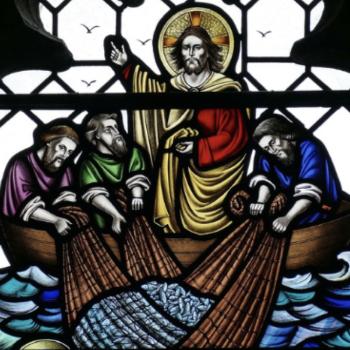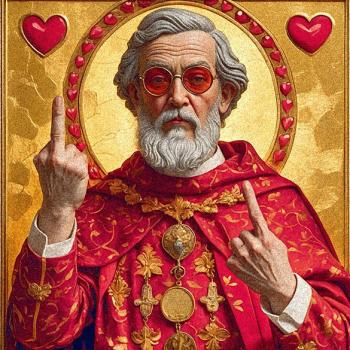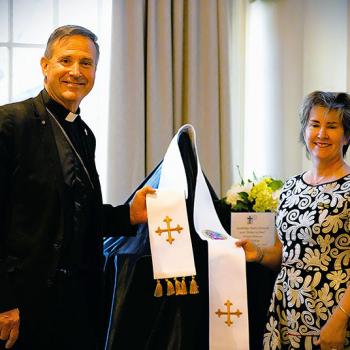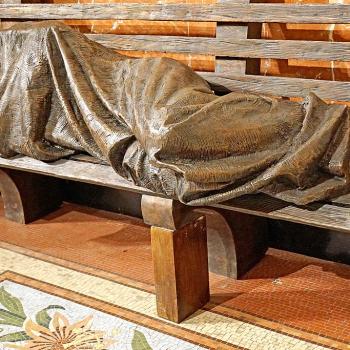 By James Calvin Davis
By James Calvin Davis
Despite the popularity of the exercise, I am not drawn to write the obituary of mainline Protestantism. To the contrary, I think Protestantism faces an important future of public witness. Specifically, as one who laments the dysfunction of the current U.S. political climate, I hope we will see mainline churches stepping up to help infuse some civility into our national life. I think Protestantism is well situated to make that kind of mark, but a couple of steps are necessary first.
Get over the hegemonic hangover. In retrospect we can argue whether it was right for Protestants to baptize the last century the "Christian Century," but it is hard to imagine our current era living up to that title. Nowadays the religious culture of the United States is thoroughly pluralistic, and significant demographic shifts in American religiosity will require mainline Protestants to accept no longer being at the cultural center. That's no small task, given Protestantism's cultural dominance since the nation's inception. Wherever you fall in that endless debate over whether or not the United States was founded as a Christian nation, you cannot deny that Protestants enjoyed substantial preference and shaped the culture for most of U.S. history.
Those days are largely over. The advent of multiculturalism provided challengers to the reigning Protestant worldview, while the rise of secular philosophical movements questioned the adequacy of religious perspectives on public issues altogether. Given this diversity, it is increasingly far-fetched to refer to the United States as a Protestant nation. Mainline Protestant hegemony is dead, and the faster we come to terms with that loss of power, the more liberated we will be to imagine our place (and our influence) in a nation in which we are simply one among many.
Insist on a place at the table. At the same time, we cannot deny the influence Protestantism has had on the evolution of an American moral tradition. While the record is not unambiguously positive, Protestants were instrumental to the success of significant moral reform movements throughout U.S. history -- abolition, economic justice, and civil rights, to name a few. Protestants should be proud of that influence, reminding revisionist historians of religion's importance to the maturation of American culture. And in the spirit of that leadership, mainline Protestantism still has something to contribute to public moral debate today.
Against the objections of secularists like Bill Maher and Richard Dawkins, mainline Protestants should tenaciously hold on to their place at the proverbial table of public discourse. We do well to point out that the "separation of church and state" never required religious persons to keep their views entirely out of public life. It is impossible for many persons to think about morality and politics from a perspective whitewashed of all religious convictions, and history testifies to the positive influence religious perspectives and communities can have on moral reform in the U.S. The demise of Protestant hegemony does not mean that mainline churches must entirely cede their place in the project of shaping a moral political culture.
Mobilize the muddled middle. When we embrace our history of public presence while giving up windmill dreams of restored Protestant hegemony, we are positioned to make distinctive contributions to American political culture. I think one of the most important marks Protestantism can make is the introduction of some civility to American public life. Years ago sociologist James Davison Hunter argued that the United States is caught up in an ideological "culture war" between conservatives and progressives. Academics debate the extent of this war, but a quick flip through the cable news shows suggests that Hunter was right. Political commentators track elections in terms of "red states" versus "blue states," while political pundits adopt the rhetoric of culture war to mobilize troops for or against a variety of hot-button issues.
While the rhetoric from the major political parties and media outlets seems to confirm the reality of this culture war, however, polls suggests that most Americans hold views that are more complicated than the ideological extremes. Most Americans' perspectives on controversial social issues, from abortion to same-sex marriage to the environment, are often nuanced or even confused. Many Americans jump in and out of conformity with the more strident camps, routinely combining stereotypically conservative views on some issues with stereotypically liberal views on others. I refer to this large, complicated, interesting, and relatively silent majority of Americans the "muddled middle."




